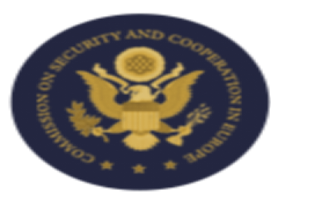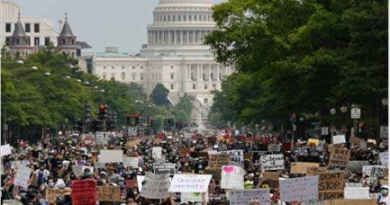U.S. Election Practices: An International Perspective

Washington, DC
United States
House of Representatives
117th Congress
First Session
Congressional Record, Vol. 167
No. 49
Tuesday, March 16, 2021
BY HON. ALCEE L. HASTINGS
Madam Speaker, this chamber recently passed H.R. I, the significant legislation making it easier for American citizens to vote in U.S. elections and improving transparency and accountability in our election process. The White House also recently announced a new executive order to assist this effort. These are positive developments that I welcome and support, but, as we all know, not everything regarding the conduct of elections can be done at the federal level. Unfortunately, many state legislatures are now undertaking efforts that would make it more difficult for eligible Americans to participate in the electoral process and vote.
As Chair and in the leadership of the Helsinki Commission, I have supported the positive steps we are trying to take on this issue, yet I remain deeply concerned about those who want to move our country backward.
Perhaps it would help our debate to look at the conduct of the 2020 U.S. elections from an international perspective, including the conduct of elections in conformity with international commitments first proposed and advocated by the United States more than 30 years ago.
The United States has been one of five countries thus far where the OSCE Parliamentary Assembly has observed elections during the unprecedented challenges of the pandemic, and a German parliamentarian reported on its findings on February 26. He did not point fingers at us and accuse us. He mentioned the positive as well as the negative. He is clearly a friend who cares, as most of the OSCE observers undoubtedly were.
As a previous election observer in the OSCE region, I can also attest, that the code of conduct makes it extremely unlikely that the OSCE election observation could be steered in support of any particular agenda other than better democracy.
I, therefore, want to commend to my colleagues the full OSCE Final report “United States of America General Elections, 3 November 2020, ODIHR Limited Election Observation Mission. It offers an important perspective on our elections from persons who rightly care about the process, not the result. They have observed not only our elections since 2002 but elections in dozens of other countries on a regular basis.
The issues raised in the report are the same issues we Americans debate here in Washington, in our state capitals, and through the media. I take the conclusions and recommendations, including criticisms, in this election observation report seriously. It serves as a helpful guide on what next steps we should take to improve our electoral system. I believe our elected officials and state legislators should read this report; indeed, I recommend it to any American who cares about his or her country. It is a broad snapshot of our entire, complex electoral system.
Several of the priority recommendations in the report deal with voting rights and voter identification. Specifically, it says that “authorities should review existing measures to further reduce the number of unregistered voters, including addressing burdensome procedures and obstacles faced by disadvantaged groups.” It also says that “states should make every effort to ensure that voter identification requirements are equally accessible to all voters.” It also makes specific recommendations regarding specific groups of American citizens.
We do not need to agree on every conclusion and recommendation in this report to take it seriously. It is a contribution to our debates from a unique perspective. Moreover, our acceptance of international observation serves a useful function in our foreign policy. OSCE election observation has encouraged practices giving voters a real choice in numerous other countries, many of which were once repressive, one-party communist states but are now our friends and even, in some cases, allies. The United States initiated this effort with the OSCE and contributes significantly to election observation missions elsewhere, providing the expertise that comes with our experience. If we are to encourage other governments to take this effort seriously and implement recommendations, we need to set the example ourselves. Unfortunately, several U.S. states greatly restrict or even prohibit international observation. This is something that must change as we prepare for mid-term elections in 2022 and general elections in 2024.

